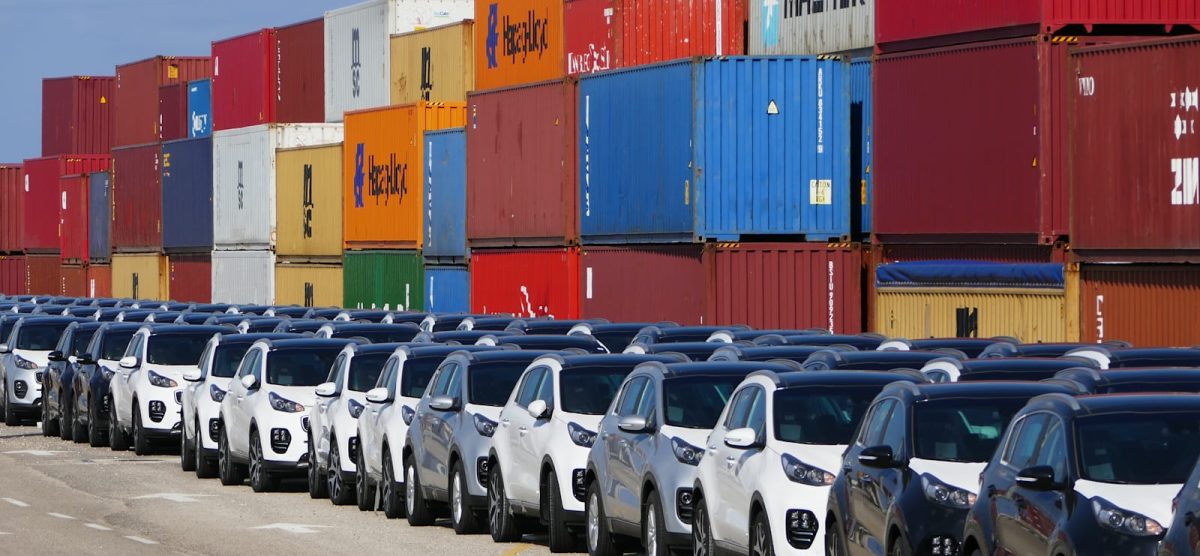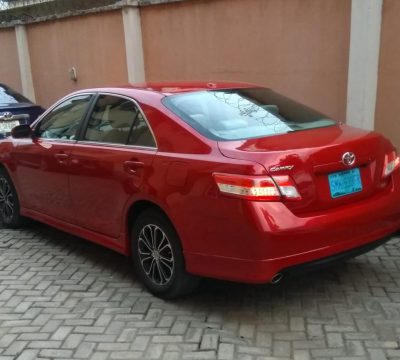Importing Cars into Nigeria: Everything You Need to Know

Importing a car into Nigeria can be a daunting task, especially if you’re new to the process. There are a lot of rules and regulations to follow, and the paperwork can be overwhelming. But with the right information and a little guidance, importing a car into Nigeria can be a smooth and straightforward process. In this article, we’ll take a deep dive into everything you need to know about importing cars into Nigeria.
We’ll cover the legal requirements, taxes, duties, and fees involved. We’ll also explore the different methods of shipping, and some tips for finding the best deals on cars. So, whether you’re a car enthusiast looking to import your dream ride, or a business owner looking to import cars for resale, this article will provide you with all the information you need to make the process as easy and stress-free as possible.
Understanding the Regulations
Importing a car into Nigeria requires compliance with specific regulations and standards. It’s essential to understand the requirements to avoid any legal or financial complications.
Overview of Nigerian Import Regulations for Cars
The Nigerian government regulates the importation of cars to protect the local automotive industry and ensure road safety. The regulations are enforced by the Nigerian Customs Service (NCS) and the Standards Organisation of Nigeria (SON).
One of the most important regulations is the requirement for roadworthiness. Every imported car must meet Nigerian road safety standards, which include features such as seat belts, headlights, brake lights, and side mirrors. The car must also be right-hand drive, as driving on the left side of the road is the norm in Nigeria.
Import Duties and Taxes
Import duties and taxes are part of the costs involved in importing cars into Nigeria. The duty is a percentage of the car’s total value and is calculated based on the current exchange rate. The value of the car is determined by the Nigerian Customs Service, which uses the CIF (Cost, Insurance, and Freight) method.
Apart from import duty, there are other taxes and fees to consider, such as the Value Added Tax (VAT), port charges, and shipping fees. These charges vary depending on the port of entry, the shipping method, and the value of the car.
Age Restrictions and Compliance with Nigerian Standards
The Nigerian government has age restrictions on the importation of cars. Only cars that are less than 15 years old are eligible for importation into Nigeria. This rule is in place to ensure that only cars with modern safety features and technology are on the road.
Additionally, imported cars must comply with Nigerian standards for emissions and fuel efficiency. The Standards Organisation of Nigeria (SON) enforces these regulations, and cars that do not comply are not allowed into the country.
Documentation Requirements
Importing a car into Nigeria requires a lot of paperwork. You’ll need to provide documents such as the bill of lading, the international passport, the purchase invoice, and the export declaration. The Nigerian Customs Service has a list of all the required documents, and it’s essential to ensure that you have everything before shipping the car.
Importing a car into Nigeria is a significant investment, and it’s essential to choose the right car to avoid any regrets later. Here are some factors to consider when selecting a car for import.
Factors to Consider When Choosing a Car for Import
The first thing to consider is the purpose of the car. Will you be using it for personal use or for resale? If you’re importing the car for personal use, you need to consider factors such as the car’s size, fuel efficiency, and comfort. If you’re importing the car for resale, you need to consider factors such as the demand for the car in Nigeria, the competition, and the resale value.
Popular Car Models in Nigeria
Nigerians have a preference for certain car models, and it’s essential to consider this when selecting a car for import. Some popular car models in Nigeria include Toyota Camry, Toyota Corolla, Honda Accord, and Kia Rio. These cars have a high demand, and they are relatively easy to sell.
Evaluating the Condition and History of the Car
Importing a car from another country can be risky, and it’s essential to ensure that the car is in good condition. Get a thorough inspection of the car before shipping it, and ensure that any issues are fixed before shipping. You should also check the car’s history to ensure that it has not been involved in any accidents or has any outstanding debts.
Assessing the Cost and Feasibility of Importing Specific Cars
Importing a car into Nigeria can be expensive, and it’s essential to assess the cost and feasibility of importing specific cars before making a decision. Consider factors such as the cost of the car, shipping costs, import duties, and taxes. You should also consider the demand for the car in Nigeria, as this will affect the resale value.
Engaging a Reliable Import Agent or Clearing Agent
Importing a car into Nigeria requires a lot of paperwork and can be overwhelming. Engaging a reliable import agent or clearing agent can make the process smoother and less stressful.
The Role of Import Agents or Clearing Agents
Import agents or clearing agents are experts in the importation process and can handle all the paperwork and logistics on your behalf. They can help you navigate the regulations, obtain the necessary permits and licenses, and handle the customs clearance process.
How to Find a Trustworthy Agent
When choosing an import agent or clearing agent, it’s essential to do your research and find a trustworthy agent. Look for agents with a good reputation, and ask for references from previous clients. You can also check online reviews and ratings to get an idea of the agent’s reliability.
Responsibilities and Benefits of Working with an Agent
Working with an import agent or clearing agent can save you time and money. They can handle all the paperwork and logistics, which can be overwhelming for someone who is not familiar with the process. They can also help you avoid costly mistakes and ensure that your car is imported legally and safely.
Understanding the Cost Implications
Engaging an import agent or clearing agent comes with a cost. The cost varies depending on the agent’s services and the value of the car. It’s essential to understand the cost implications and factor this into your budget when importing a car into Nigeria.
Preparing for Importation
Before importing a car into Nigeria, you need to prepare adequately to avoid any delays or complications.
Obtaining Necessary Permits and Licenses
Importing a car into Nigeria requires obtaining the necessary permits and licenses. You’ll need to apply for an import permit from the Nigerian government and obtain a Vehicle Inspection Report (VIR) from the Nigerian Customs Service.
Understanding Shipping and Logistics Options
There are different methods of shipping a car to Nigeria, including Roll-on/Roll-off (RoRo) and container shipping. Each method has its advantages and disadvantages, and it’s essential to understand the shipping and logistics options before making a decision.
Packaging and Securing the Car for Transportation
When shipping a car to Nigeria, it’s essential to ensure that it’s packaged and secured properly to avoid any damage during transportation. You should also remove any personal items from the car before shipping.
Insurance Considerations
Insurance is essential when importing a car into Nigeria. You should ensure that the car is insured before shipping, and that the insurance covers any damage or loss during transportation.
Navigating the Importation Process
The importation process can be complicated, and it’s essential to understand the steps involved.
Step-by-Step Guide to Importing a Car into Nigeria
The importation process involves several steps, including obtaining necessary permits and licenses, shipping the car, clearing customs, and registering the car. You can engage an import agent or clearing agent to handle the process on your behalf.
Clearing Customs and Paying Import Duties
Clearing customs involves presenting the necessary documents and paying the import duties and taxes. The Nigerian Customs Service will inspect the car to ensure that it meets the required standards before clearing it.
Inspection and Registration Procedures
After clearing customs, you’ll need to take the car for inspection and registration. The Nigerian government requires that all imported cars are inspected and registered before they can be driven on Nigerian roads.
Dealing with Delays and Potential Challenges
Importing a car into Nigeria can be challenging, and it’s essential to be prepared for potential delays and challenges. Delays can be caused by issues such as incomplete documentation, customs inspections, or transport delays. It’s important to have a contingency plan in place to deal with any potential delays.
Conclusion
Importing a car into Nigeria can be a complicated process, but with the right information and guidance, it can be a smooth and straightforward process. It’s essential to understand the regulations, research and select the right car, engage a reliable import agent or clearing agent, prepare adequately, and navigate the importation process. With these tips, you can import your dream car into Nigeria legally and safely.




